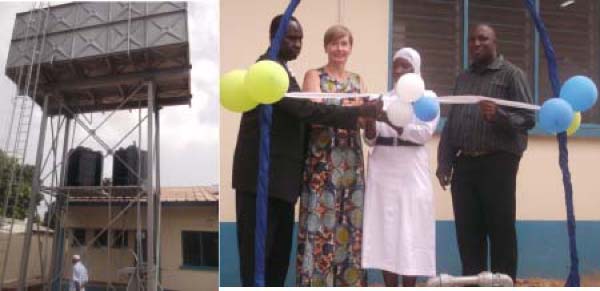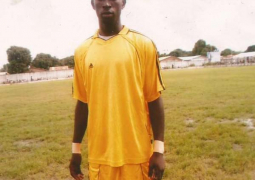
The borehole is the main source of potable water for the health centre and the community of Fajikunda at large.
Prior to the refurbishment of the water facility, MRC had built public toilets for the health centre as well as conducted staff trainings, supplied medical equipment, drugs, stationeries, office furniture and computers to the centre.
Speaking at the handing-over ceremony of the borehole, Dr Samba Ceesay of the Ministry of Health hailed MRC for its gestures in the development of health in The Gambia in different ways such as provision of trainings for medical personnel and provision of essential drugs.
“The most commendable gift today is that the water issue at Fajikunda is solved and all thanks to MRC,” Dr Ceesay said. “This we hope will go a long way in easing the constraints of staff and patients and improve the general wellbeing of the facility [the health centre].”
He noted that the work of MRC Unit in The Gambia, in collaboration with The Gambia government, has contributed immensely, both nationally and internationally, to a change in health policies globally.
Ramatoulie Jobe, head of FajiKunda Health Centre, said series of trials have been successfully conducted by the MRC at Fajikunda Health Centre with the support of the centre’s clinical staff.
She said the trials have benefited The Gambia’s health system in many ways and contributed immensely to some of the health policies in the country.
Dr Ed Clarke of MRC said polio was a disease once feared, worldwide, for causing irreversible paralysis and sometimes death, mainly in children under-five years.
He said global efforts to eradicate polio led to the formation of the Global Polio Eradication Initiative by World Health Assembly of the World Health Organisation in 1988.The main goal of the initiative was to ensure a polio-free world for the future generations by reaching every child with polio vaccine.
As a result, Dr Clarke said, the number of polio cases, worldwide, has declined from 350,000 in 1988 to about only a few hundred cases, last year, and even less this year.
There has been no case of polio reported in The Gambia since the year 2000 and no case of wild-type polio anywhere is sub-Saharan Africa for almost a year.
Dr Olubukola Idoko said pneumonia remains a leading cause of death in the developing world as one million under 5-year children die each year from the disease.


